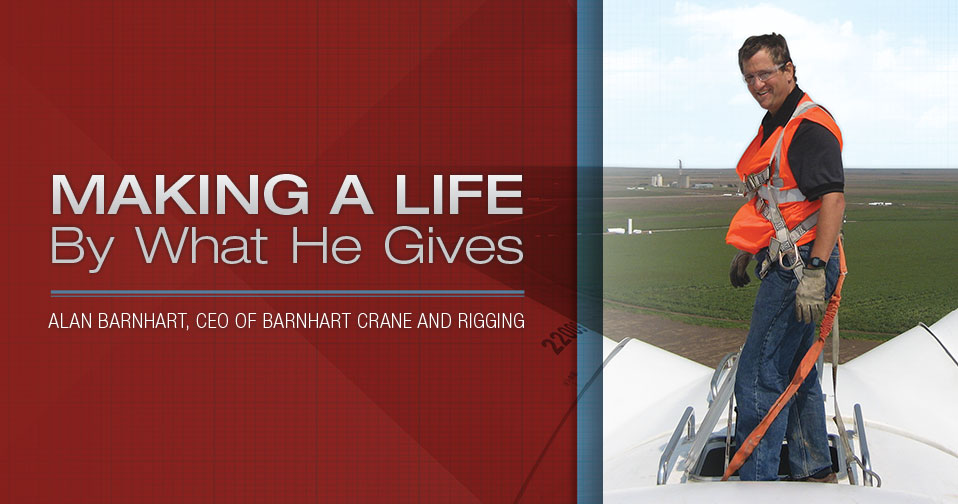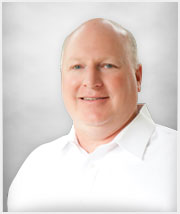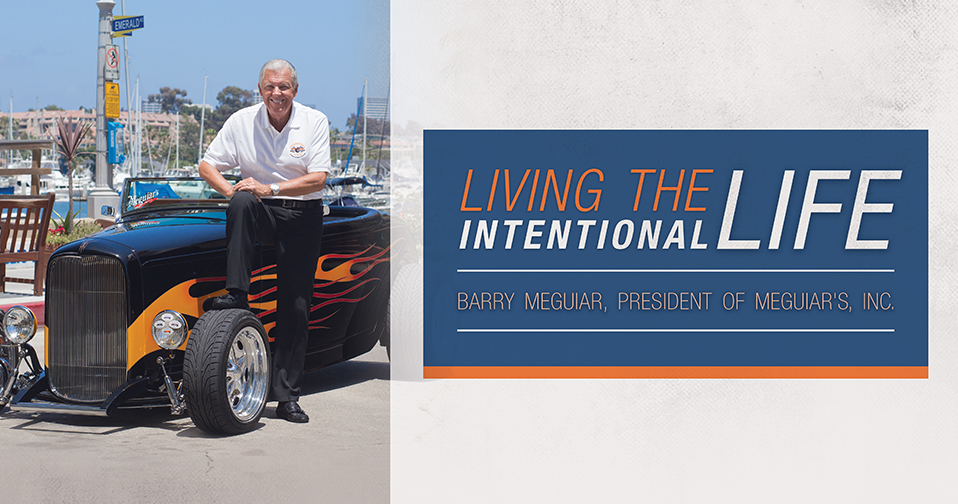Making A Life By What He Gives

Now a man came up to Jesus and asked, “Teacher, what good thing must I do to get eternal life?” “Why do you ask me about what is good?” Jesus replied. “There is only One who is good. If you want to enter life, obey the commandments.” “Which ones?” the man inquired. Jesus replied, “ ‘Do not murder, do not commit adultery, do not steal, do not give false testimony, honor your father and mother, and love your neighbor as yourself.’“ “All these I have kept,” the young man said. “What do I still lack?”
Jesus answered, “If you want to be perfect, go, sell your possessions and give to the poor, and you will have treasure in heaven. Then come, follow me.” When the young man heard this, he went away sad, because he had great wealth.
- Matthew 19:16-22
In this parable of the young rich man, Jesus boldly speaks directly to the core of the young man’s heart. He knew that the young man was not only secure in his wealth but it was his life. Jesus’ challenge to the young man to sell all of his possessions and give to the poor is a dilemma that perplexes many business owners. God knew the struggles that we would have with money and has provided over 2300 scriptures in the Bible to provide wisdom for anyone who seeks it. For Alan Barnhart, CEO of Barnhart Crane and Rigging, the lessons he learned about wealth and stewardship in the bible have kept him and his family grounded and focused on God’s direction for their lives.
Humble Beginnings
Barnhart Crane and Rigging was founded by Alan’s parents as a steel erecting company headquartered from their home in Memphis, Tennessee. They worked hard and ran an honest, local business with ten employees. At that time, his parents weren’t believers. It wasn’t until Alan was in high school that he was introduced to the joy and fulfillment that followers of Jesus Christ experience. Alan became involved with the Young Life organization and came to know Christ. This changed the trajectory of his life and the life of his family.
Growing up around gears and pulleys to lift and move large pieces of machinery gave Alan a terrific background to pursue engineering as a career. After high school he attended the University of Tennessee with his newfound faith and befriended several other believers on campus. At a time when most young people have their first taste of independence and stray from their faith, for Alan, it was a time of solidification of his faith.
During his senior year of college, friends urged him to pursue full-time ministry work and attend seminary school. He had a deep desire to serve the Lord full-time and prayed for God’s purpose for his life. Alan came to a realization that gave him a great sense of peace; all followers of Christ are in full-time ministry, regardless of their occupation. Working full-time for a charitable organization or church wasn’t the only way of serving God full-time. This freed Alan to pursue a career for which God had equipped him in the engineering/construction industry.
God’s Warnings About Wealth
After graduating with an engineering degree, he went to work at the modest family business. Even though he had just started his career, he felt led to study what the bible had to say about business, money, wealth and giving to the poor. He spent the next two years reading completely through the bible to glean as much information as possible and was amazed at how God had gone to such great lengths to teach and warn us about the dangers of money. There are more references to money and wealth in the bible than prayer, faith, heaven and hell - combined!
In Alan’s intensive studies, there were two truths that emerged to him:
- Everything that he had, and everything that he was came from God and belongs to God.
- Because there were so many dire warnings in the bible regarding wealth and money, he feared business success and wealth.
There were several scriptures that spoke to his heart concerning wealth, including:
"Those who want to get rich fall into temptation and a trap and into many foolish and harmful desires that plunge people into ruin and destruction. For the love of money is a root of all kinds of evil."1 Timothy 6:9-10
"In this way they will lay up treasure for themselves as a firm foundation for the coming age, so that they may take hold of the life that is truly life."1 Timothy 6:19
The greatest warning came from the parable that Jesus told his disciples of the Sower of Seeds:
"Then he told them many things in parables, saying: ““A farmer went out to sow his seed. As he was scattering the seed, some fell along the path, and the birds came and ate it up. Some fell on rocky places, where it did not have much soil. It sprang up quickly, because the soil was shallow. But when the sun came up, the plants were scorched, and they withered because they had no root. Other seed fell among thorns, which grew up and choked the plants. Still other seed fell on good soil, where it produced a crop—a hundred, sixty or thirty times what was sown.”Matthew 13: 3-8
Jesus then explained the meaning of the parable in verses 18-23.
Alan, like most believers, felt that his faith was solid and fell into the “fertile soil” category. What he feared most was written in verse 22:
“The seed falling among the thorns refers to someone who hears the word, but the worries of this life and the deceitfulness of wealth choke the word, making it unfruitful.”
He worried that the seeds sown in his soil would be in danger of being choked by the thorns of the deceitfulness of wealth and worries of this life. We live in a culture that honors and idolizes those men and women who have amassed great personal wealth. With that wealth comes power, prestige and the unhindered pursuit of any earthly desire. Even within the body of believers, successful business men and women are revered and applauded for their trophies of cars, houses, jewelry and boats. Unlike other lifestyles of sin where it’s easy to see the path to one’s destruction, it’s difficult to convince a brother in Christ that his lifestyle is causing him to stumble (or causing others to stumble by breeding envy at the flaunting of his wealth) while his business continues to grow and prosper.
Establishing Safeguards
Also during those first few years out of school, he met and married his wife Katherine who shared his passion for serving the Lord. He and Katherine decided to become tent-maker missionairies in a closed country. About that same time, Alan’s parents approached him with the news that they were ready to get out of the business and wanted to take a few years to enjoy life and sail around the world. They gave him and his brother Eric the option to take over the business. If their sons weren’t interested, they were prepared to sell it.
After praying and discussing it with his brother, they decided to forego the mission field and take over the business, but Alan wanted to establish some safeguards with the goal of avoiding some of the pitfalls about wealth that had made such an impact on his heart. First and foremost, they agreed to perpetually abide by the fact that God owned the company, not them. They also agreed to intentionally avoid getting caught up in the lure that wealth holds and to hold one another accountable. They committed to what he refers to as a “lifestyle finish line.”
He and his wife determined that, regardless of the level of success that the company may attain, they would maintain a modest, middle income lifestyle and distribute any excess money to fund ministry efforts. Alan’s brother and his wife agreed to a similar commitment. With their lifestyle finish lines in place, Barnhart Crane and Rigging began to make a name for itself. Alan managed the business aspects of the company, and Eric focused on the engineering aspects.
Attempting to Out-give God
As the business began to grow, the amount of money available to distribute to ministries grew as well. A group of six employees were appointed to an advisory board to determine the ministries to receive contributions (primarily to international ministries where resources are the scarcest). Making these decisions as a group also helped to avoid the possibility of pride entering into the act of giving. The money that was contributed to ministries across the globe isn’t referred to by Alan as gifts, but as investments; investments produce a yield, an eternal yield in their case. The more money that was invested into worldwide ministry efforts, the more prosperous the company became. It grew an incredible twenty five percent every year for over two decades. Alan’s lifestyle remained the same as his company grew. His family grew as well to include six children whom he and his wife enjoy.
"The more money that was invested into worldwide ministry efforts, the more prosperous the company became. It grew at an incredible twenty five percent every year for over two decades.”Alan Barnhart
Another way that God blessed the business was by bringing great people into their organization at the right times. The company culture solidified in the unifying purpose of doing excellent work, treating people fairly and investing a substantial portion of the profits to make an eternal impact. They began to expand to other locations across the country, spreading their culture along the way. They currently serve over twenty five locations in the United States.
Since Alan and Eric took over the family business in 1986, Barnhart Crane and Rigging has grown to become one of the largest heavy rigging and transport companies in the USA. They frequently lift and transport nuclear reactor equipment, large machinery, petro-chemical assemblies and large wind turbine equipment. The specialized and complex rigging structures that they developed positioned them as a leader in their industry. In the early 2000’s, they were able to give away one million dollars for the first time, and by 2005 they gave away a million dollars a month and have been able to maintain that average of giving since then.
The board of six employees that was formed to guide their charitable giving grew into a “profit with a purpose” program called GROVE: God’s Resources Operating Very Effectively. The GROVE program now has over fifty team members and spouses that are involved in the giving process. They are able to discern ministry investment opportunities and determine which to pursue. Only God can grow a company to the point that it takes over fifty people to manage all of its charitable investments!
Giving Away a Business
Even as vast sums of money were being given away, the value of the company soared to over $250 million. With a company that large, supporting a thousand employees, Alan and his management team felt that they needed to develop a strategy to put in place in the event that something were to happen to Alan or any of the management team. From the beginning, Alan realized that the company belonged to God, and he didn’t feel that it was his right to automatically hand over a huge company to one of his children. They decided that they would try to give the entire company away. Not surprisingly, business advisors didn’t share the same philosophy and advised against it. Who gives away such a large and successful business?
Still convinced that giving away the company was what he should do, Alan had a discussion with an advisor from the National Christian Foundation who not only shared their vision but within a thirty minute conversation was able to lay out a plan that would accomplish his goals. Alan and his brother took 99% of the company and put it into a charitable trust. They retained 1% with 100% voting rights. NCF was instrumental in establishing the trust and coordinating with the IRS to navigate the tax implications. Just recently, the remaining 1% of the company was transferred to a voting trust, but the Barnharts still retain 100% of the voting rights, and Alan remains the steward of the company. That stewardship can be freely transferred at his discretion. To most people, the idea of giving away your company is outrageous, but to Alan, it was never his to begin with, and the decision came very peacefully and naturally without a hint of doubt.
The motivation for Alan to work hard in the business was never about attaining personal wealth, but impacting God’s Kingdom. That motivation remained the same after the transfer of the company. The company purpose statement remains the same as well.
Barnhart Crane And Rigging Purpose Statement – To Glorify God By:
- Doing excellent, constructive work.
- Letting others know what Christ has done by being a personal witness in the marketplace.
- Making a lot of money to invest in ministry tools.
A Life of Rewards Rather than Sacrifice
For Alan and his family, it hasn’t been a sacrificial life but a rewarding life. They live comfortably, not excessively, and have learned to be Kingdom investors, not consumers. They have been able to reap the rewards of investing in God’s Kingdom without the negative aspects of wealth.
Those same rewards have been realized by employees as well. Although the company has a diverse team with many different religious beliefs, many believers have come to work there just because of the ministry efforts of the company. Others have become believers in Christ after seeing the joy in the lives of co-workers and desiring the same joy for their own lives.
Alan concedes that if it had been difficult to surrender the company and live a modest lifestyle, he most likely wouldn’t have gone through with it. On the contrary, he and his family have been blessed with a full and abundant life, filled with the rewards of sowing seeds for God’s glory. They’ve been to remote corners of the world, working alongside other brothers and sisters in Christ and finding that their lives were enriched far more than those they were there to help.
For Alan Barnhart and Barnhart Crane and Rigging, the rewards of being obedient to God’s wisdom and guidance for their lives is summed up eloquently by a quote from Winston Churchill:
"We make a living by what we get, but make a life by what we give.”Winston Churchill

By: Mark Whitaker
Mark Whitaker is the Executive Editor of TwoTen Magazine. He is inspired daily by his God, his wife Kim and his three daughters Hannah, Sarah, and Rhea.
Read More Articles by Mark Whitaker





